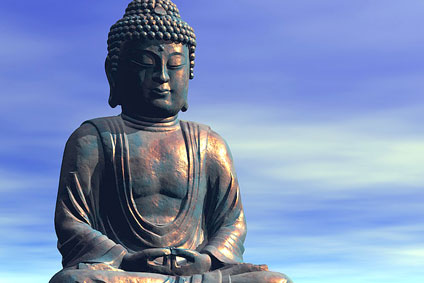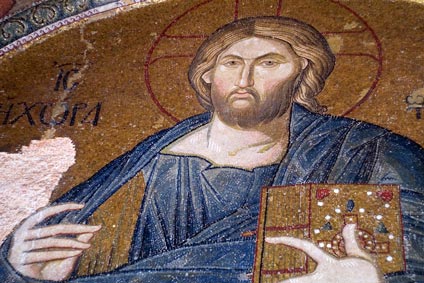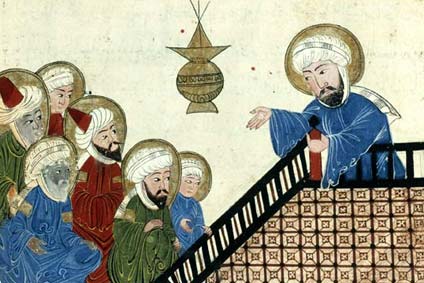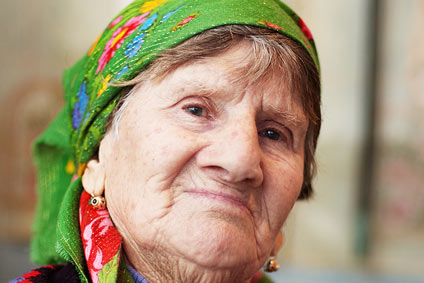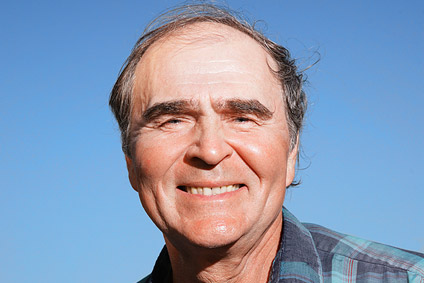It’s a familiar analogy, but quite accurate, to talk about our relationship with the sacred in the same way we describe a beautiful gemstone. There are many facets to a gem, and depending upon the angle from which we view it, we see light reflected and refracted differently. Several people looking from different angles may report seeing something different, and yet they are all describing the same gem. In the same way, there are many facets to the sacred, and we all see it differently depending upon the “angle” of our culture and experience. And yet there is but one sacred.
There is an old saying that “The central urge of every atom is to return to its source.” When you look at the gamut of religions — all of which describe their own versions of the many-faceted gem — the one truth that runs through every one of them is that each of us is called to discover our true essence, our connection with the divine.
That discovery is the whole of the spiritual journey, no matter what the religious path or discipline may be. And the beauty that is inherent in all of these individual religions is that they each provide an opportunity for individuals to discover the truth of themselves through their particular tradition. This is expressed in scripture from many traditions.
“Those who love God are those whom God loves.” — Sufism
“God is love and those who abide in love abide in God.” — Holy Bible
“God is in you.” — Vedas
It’s essential for us to realize that in spite of all the differences that seem to exist between us as individuals — color, race, creed, religious background — we all have a need within us that almost never leaves us alone, an almost incessant sense that something vital is missing from our life.
According to each different culture and tradition, that which is vital is named differently. Individuals pursue what has been named, hoping that somehow it will put an end to the sense that something is missing.
But when people get caught up in the particulars of their own religion, they often lose sight of the fact that the vital thing that seems to be missing is already within them, it has always been within them, and the same vital element that is within them lives within every human being on this planet.
To find it in myself is to see it in everyone else. And if I can see it in myself and in everyone else, I can’t be in conflict with others anymore. I can’t judge them. It’s impossible not to be compassionate if I see that I am everyone, and that every one of us is born with the same central need and the longing to fulfill it.

Now, more than ever, it is critical that individuals come to realize this common bond between us. There has probably never been as much conflict in our world, as much individual suffering, and as much global potential for a nightmarish situation, including what is happening to our environment, regardless of its cause. When we look at the planet at this moment, we’re looking at what has come from all that we’ve known, and known to do, from our understanding.
If I can see for a fact that the world that I am in today is not a better place than the one I came into, then inherent in seeing the world as it is, and recognizing that I am the world that I see, comes the understanding that the world cannot possibly change until something in me changes, until I begin seeing in a new way.
And this is where we come back to the unifying principle across religions. All true spiritual teachings are designed to awaken individuals to the truth of their own indwelling divinity. M.K. Gandhi realized the existence of this innermost invisible unity, and proclaimed so, when he said: “There is no God higher than Truth.”
But with such great knowledge comes great responsibility: If we are one in our longing for a love that transcends time, and the unconditional liberation it grants, then so must the converse must hold true: we are also one in all the various forms of suffering that comes with looking for these powers in all the wrong places. As we see this truth of our common sorrow — a revelation that includes awakening to our misplaced anger towards others for their “failure” to make us “happy” — a whole action is mandated: we must not only stop blaming others for our broken dreams, but we must also die to all of the unconscious demands that we have placed upon them to fulfill our dreams.
Only by accepting full responsibility for own nature — as events and relationships serve to reveal it to us — can we awaken the true compassion we need towards others. Everyone hopes; everyone hurts; everyone needs love and forgiveness. In the end, it’s only by being exactly what we are that we can start to see how much we are all the same. Peace is the flower of this understanding, freedom its fragrance.
We are all here to find the sacred, and it’s a difficult journey for every one of us. Understanding this underlying truth leads us to compassion, peace, and a world where instead of being in servitude to unconscious forces that are tearing us apart, we work in the service of a divine love whose one wish is the same as our own: that we realize and fulfill our celestial possibilities.
— Guy Finley, author of The Seeker, The Search, The Sacred: Journey to the Greatness Within

